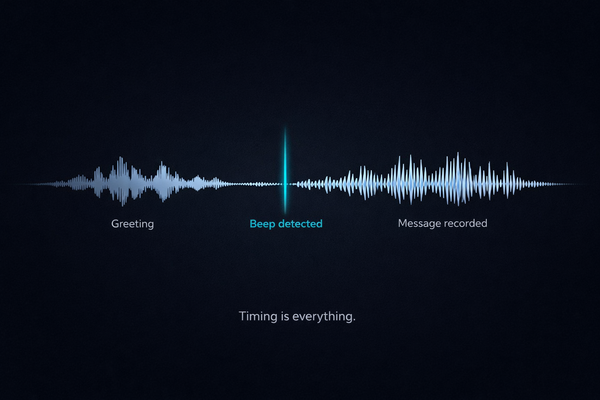[AI Digest] Memory Systems Transform Agent Intelligence
![[AI Digest] Memory Systems Transform Agent Intelligence](/content/images/size/w1200/2025/07/Daily-AI-Digest-2.png)
Daily AI Research Update - July 14, 2025
Today's AI research landscape reveals groundbreaking advances in agent capabilities, with a particular focus on memory systems, cross-domain learning, and multimodal reasoning. These developments directly impact the future of customer experience platforms, offering new pathways to create more intelligent, context-aware, and effective AI agents.
📌 MIRIX: Multi-Agent Memory System for LLM-Based Agents
Description: A revolutionary 6-component memory architecture that enables AI agents to maintain context, learn from interactions, and provide personalized experiences through episodic, semantic, and procedural memory components.
Category: Chat, Web agents
Why it matters: This framework achieves 35% accuracy improvement with 99.9% storage reduction, making it game-changing for scalable customer service. Agents can now remember past interactions, understand user preferences, and provide consistent experiences across sessions.
📌 Agent KB: Leveraging Cross-Domain Experience for Agentic Problem Solving
Description: A framework enabling AI agents to learn from each other's experiences across different domains, showing 16.28% performance improvement on complex tasks through shared knowledge bases.
Category: Chat, Web agents
Why it matters: This allows customer service agents to share successful problem-solving strategies across different scenarios, dramatically reducing training time and improving overall system performance through collective learning.
📌 MedGemma Technical Report
Description: Google's medical vision-language models achieving 76% accuracy on medical tasks, demonstrating how specialized training can dramatically improve agent performance in specific domains.
Category: Voice, Chat (specialized domain understanding)
Why it matters: While medical-focused, this research shows the power of domain-specific training for AI agents, directly applicable to creating industry-specific customer service solutions with deep expertise.
📌 Perception-Aware Policy Optimization for Multimodal Reasoning
Description: Addresses the critical perception bottleneck in multimodal AI, revealing that 67% of errors come from misperceiving visual inputs. The PAPO method achieves 4.4% overall improvement in multimodal reasoning.
Category: Web agents (visual understanding)
Why it matters: Essential for web agents that need to understand screenshots, product images, or visual documentation to assist customers effectively. This research directly improves agents' ability to perceive and reason about visual information.
📌 OST-Bench: Evaluating MLLMs in Online Spatio-temporal Scene Understanding
Description: A new benchmark for evaluating how AI models understand dynamic spatial environments, revealing a 30% performance gap between current models and humans in real-time spatial reasoning.
Category: Web agents
Why it matters: Critical for web agents that need to guide users through complex interfaces or understand changing web layouts in real-time. This benchmark pushes the field toward more capable spatial reasoning in AI systems.
📌 4KAgent: Agentic Any Image to 4K Super-Resolution
Description: Demonstrates an agentic framework with perception, restoration, and quality assessment components working together to enhance images, achieving state-of-the-art results through multi-agent coordination.
Category: Web agents (visual processing)
Why it matters: Shows how multi-agent architectures can handle complex visual tasks, directly applicable to agents processing customer-uploaded images, documents, or visual content in support scenarios.
📌 Skywork-R1V3 Technical Report
Description: A vision-language model achieving 76% on multimodal reasoning tasks through critic-guided reinforcement learning, matching entry-level human performance while remaining open-source.
Category: Chat, Web agents
Why it matters: Demonstrates how to bridge the gap between open-source and proprietary models in multimodal understanding, crucial for cost-effective deployment of advanced AI agents in customer experience platforms.
📌 CriticLean: Critic-Guided Reinforcement Learning for Mathematical Formalization
Description: Introduces a framework that elevates the critic from passive validator to active learning component in mathematical formalization, achieving 87% accuracy on challenging benchmarks.
Category: Chat agents (reasoning capabilities)
Why it matters: Shows how incorporating critical feedback into AI training can produce more reliable and accurate reasoning, essential for agents handling complex customer queries requiring logical thinking.
📌 OmniPart: Part-Aware 3D Generation with Semantic Decoupling
Description: Enables generation of 3D objects with explicit, editable part structures, achieving low semantic coupling while maintaining high structural cohesion through a two-stage framework.
Category: Web agents (3D understanding)
Why it matters: As customer experiences become more immersive with 3D product visualization, agents need to understand and manipulate 3D content. This research enables more sophisticated visual assistance capabilities.
📌 Dualformer: Controllable Fast and Slow Thinking
Description: Achieves dual-mode reasoning in a single model, allowing AI to switch between fast intuitive responses and slower deliberative reasoning, improving both efficiency and accuracy.
Category: Chat agents (reasoning optimization)
Why it matters: Enables customer service agents to adapt their response style based on query complexity - providing quick answers for simple questions while engaging deeper reasoning for complex issues.
This research roundup supports Anyreach's mission to build emotionally intelligent, visually capable, and memory-aware AI agents for the future of customer experience.




![[AI Digest] Agents Coordinate Plan Deploy Scale](/content/images/size/w600/2025/07/Daily-AI-Digest.png)